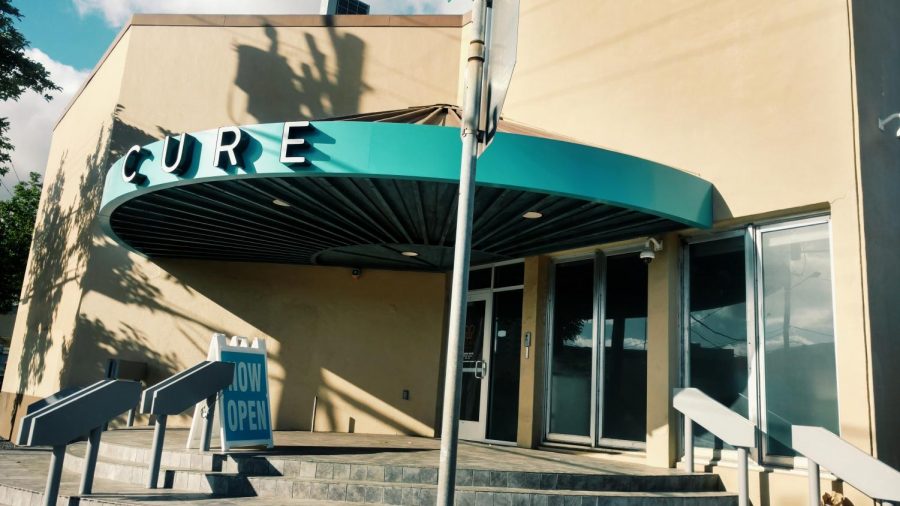Is The War Against Cannabis Finally Blowing Up In Smoke?
Cure is one of Honolulu’s few medicinal dispensaries.
All across the world, cannabis consumers celebrated the holiest of all days, 4/20, on Friday. Since the ’70s, 420 has been code for “let’s light up” and has since evolved into an entire subculture. Despite previously being illegal in all 50 states, marijuana culture has been able to gain a cult following all around the world. Given the U.S. federal government’s opposition toward cannabis, we are entering a time where legislators are realizing what cannabis advocates have been defending all along. As of 2018, marijuana has been legalized (either medically, recreationally or both) in about 30 states, Washington, D.C. and other U.S. territories such as Guam and Puerto Rico.
States that have legalized marijuana have seen a huge return on their investment. Colorado, for example, has seen a boon to its economy. According to the Colorado Department of Revenue’s 2017 annual report, Colorado obtained more than $2.7 billion in marijuana sales and collected more than $250 million in tax revenue. In addition, Colorado has seen the indirect by-products of legalization such as the sharp decline in its unemployment rate to 3 percent, one of the lowest in the country.
Despite many success stories, there is still strong opposition to marijuana at the highest levels of government. Our current U.S. Attorney General, Jeff Sessions, has been on a blitz to discredit all progress we’ve had in regard to medical research into marijuana and the evident economic benefits it provides. Sessions has even gone as far as suggesting prosecutors go for the death penalty for cultivators who produce more than 60,000 plants. This would include cultivators located in legalized states.
The backlash to the opposition has been near universal. According to a Pew Research poll from January, 61 percent of Americans are in favor of legalizing cannabis. Even state governments are beginning to realize the positive impact that a regulated marijuana industry has on a state’s economy, in addition to the medical benefits it provides. It has also caught the eye of our elected officials on the federal level. Sen. Chuck Schumer (D-NY) announced a bill last week that would effectively decriminalize marijuana at the federal level.
“My thinking – as well as the general population’s views – on the issue has evolved, and so I believe there’s no better time than the present to get this done. It’s simply the right thing to do,” said Schumer on his Senate website. “This legislation would let the states be the laboratories that they should be, ensure that woman and minority owned business have a fair shot in the marijuana industry, invests in critical research on THC, and ensures that advertisers can’t target children – it’s a balanced approach.”
His legislation would remove marijuana from the list of scheduled substances (effectively decriminalizing it on the federal level) but would continue to respect state’s rights by allowing federal authorities to prohibit trafficking to illegal states. It would also regulate advertisements like the alcohol and tobacco industries and adequately fund research. These are sensible requests that would, at minimum, allow the U.S. to better allocate its law enforcement resources and create tax revenue for states that really need it.
We, as a country, have finally reached a turning point on this subject. More dispensaries are now opening across the country. Here’s to hoping that more fully funded medical and economic studies will be enough to convince our legislators that, in the case of cannabis, resistance is futile. It’s only inevitable that cannabis will become legalized, take a look at how the prohibition of alcohol went. It’s just a matter of when.
